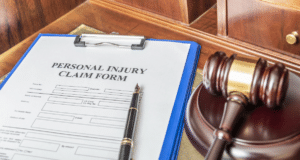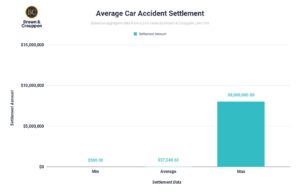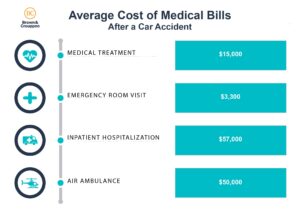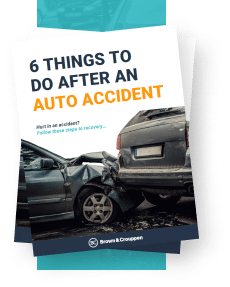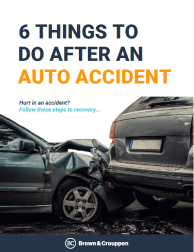

Use our legal checklist to learn what to do after an accident and understand key legal considerations for recovering financial compensation.
Liability When Someone Else Drives Your Car
When the Borrowing Driver is at Fault
If the person borrowing your car causes an accident, your insurance policy is typically considered the primary coverage for any resulting damages or injuries.
1. Insurance Follows the Car, Not the Driver: In Missouri, auto insurance coverage usually follows the car. When you lend your vehicle to someone, you’re essentially extending your insurance coverage to them. If they are involved in an accident – regardless of fault – your insurance policy, not the driver’s, is typically the first to be used for coverage.
2. Permissive Use Clause: Most auto insurance policies include a “permissive use” clause, which extends your coverage to drivers who have explicit or implicit permission to use your vehicle. This means if a friend or family member borrows your car and gets into an accident, your insurance generally covers the damages up to your policy limits.
3. Excluded Drivers: However, if the person driving your car is an “excluded driver” – someone specifically not covered by your policy – your insurance company may deny coverage for any accidents they cause. This could leave you personally responsible for damages and legal claims arising from the collision, regardless of who was at fault.
When the Borrowing Driver is Not At Fault
If the person driving your car is involved in an accident that is not their fault, the at-fault driver’s insurance should cover the damages. However, the process can be complex.
1. Uninsured or Underinsured Motorists: If the at-fault driver lacks adequate insurance, your own policy may come into play:
- Uninsured Motorist Coverage: Provides protection if the at-fault driver has no insurance.
- Underinsured Motorist Coverage: Applies if the at-fault driver’s insurance isn’t sufficient to cover all damages.
2. Deductibles and Out-of-Pocket Costs: In some cases, you may need to file a claim with your own insurance to get your car repaired promptly. This could involve paying a deductible, which you might recover later through subrogation when your insurer pursues the at-fault driver’s insurance.
3. Impact on Your Insurance Rates: Typically, a not-at-fault accident should not increase your insurance premiums. However, some insurers may still raise rates based on claims frequency. It’s essential to discuss this with your insurance agent to understand how a claim might affect your rates.
Steps To Take After An Accident
Navigating the aftermath of an accident involving your car can be stressful. Here’s a detailed guide on what to do:
1. Ensure Safety and Call Emergency Services: Safety is the top priority – instruct your driver to complete the following if not already done:
- Check for Injuries: Ensure that no one is hurt. If there are any injuries, even minor ones, call 911 immediately.
- Move to a Safe Location: If possible and safe to do so, move the vehicles out of traffic to prevent further incidents.
- Activate Hazard Lights: This alerts other drivers to proceed with caution around the accident scene.
2. Contact Law Enforcement: Even if the accident seems minor, having an official police report is important.
- File a Police Report: The responding officers will document the scene, note any traffic violations, and collect statements from all parties involved. In the state of Missouri, you have 30 days after an accident to file a report.
- Obtain Officer’s Information: Get the name and badge number of the responding officers for future reference.
3. Gather Information: Collecting detailed information at the scene is crucial for insurance claims and any potential legal proceedings.
- Exchange Details: Obtain names, addresses, phone numbers, driver’s license numbers, and insurance information from all drivers involved.
- Document the Scene: Take photographs of all vehicles from multiple angles, focusing on damages, license plates, and any skid marks or road signs.
- Identify Witnesses: If there are bystanders who witnessed the accident, collect their contact information.
4. Notify Your Insurance Company: As the vehicle owner, you should contact your insurance provider as soon as possible.
- Provide Accurate Information: Share all the details gathered, including the police report number and photographs.
- Understand Your Coverage: Clarify how your coverage applies in this situation and what steps need to be taken next.
- Keep Records: Document all communications with your insurer for future reference.
5. Consult a Legal Professional: Navigating the complexities of fault, insurance claims, and potential legal action can be challenging. A personal injury lawyer can provide valuable guidance tailored to your situation, helping you understand your rights and obligations.
Protecting Yourself Before An Accident Happens
Taking proactive steps can minimize your risk.
1. Review Your Insurance Policy
- Understand Coverage Limits: Know what your policy covers, including policy limits, liability, and exclusions.
- Check for Excluded Drivers: Ensure that anyone who might drive your car is not excluded from your policy.
2. Communicate with Potential Drivers
- Set Clear Boundaries: Let friends and family know your rules about who can and cannot drive your car.
- Assess Driving Ability: Avoid lending your car to high-risk (i.e., intoxicated, unlicensed, and inexperienced) drivers.
3. Secure Your Vehicle
- Prevent Unauthorized Use: Keep your keys in a secure place to prevent unpermitted access.
- Install Anti-Theft Devices: Consider using steering wheel locks, alarm systems, or other security measures.
How Brown & Crouppen Can Help
At Brown & Crouppen, we understand the stress and confusion that can follow an accident involving your vehicle. Our experienced personal injury attorneys are here to guide you through the legal process, protect your rights, and help you achieve the best possible results.
Starting your case is easy. Contact us at (888) 803-2581 for a free consultation or fill out our free case review form online. Remember, if you don’t get paid, we don’t get paid. Our goal is to make the legal process as straightforward and stress-free as possible.
Frequently Asked Questions
Am I Responsible for Someone Else Driving My Car?
Yes. In Missouri, you are generally responsible if someone else is driving your car with your permission and gets into an accident. Since auto insurance typically follows the vehicle, your insurance policy becomes the primary coverage for any damages or injuries resulting from the accident. Your insurance premiums may increase due to the claim.
What if My Car Was Stolen and Involved in An Accident?
If your car is stolen and then involved in an accident, you are generally not held liable for any damages or injuries caused by the thief. Since the vehicle was taken without permission, you are not responsible for the unauthorized driver’s actions.
It is important that you report the theft immediately to local law enforcement and obtain a police report. Equally important, you must inform your insurer about the theft and provide them with the police report number.
However, be aware that if you were negligent in securing your vehicle – for example, leaving the keys inside an unlocked car in a public place – your insurer might challenge your claim, or you could face liability issues. Always take reasonable precautions to secure your vehicle to prevent theft.
Is Being a Listed Driver on the Policy the Same as Having Your Own Insurance?
No. Being a listed driver on someone else’s auto insurance policy means you are recognized by the insurer as a regular driver or occasional driver of the insured vehicle. While this provides you with coverage when driving that specific vehicle, it is not the same as having your own auto insurance policy.
Your coverage is limited to the vehicle(s) specified in the policy. If you drive another vehicle not covered by that policy, you will not have insurance protection as a listed driver. To ensure that you’re fully protected, it’s important to have your own auto insurance policy

